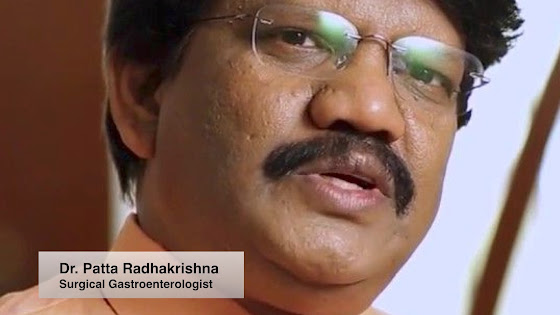By the time the ailing Nigerian, Sun Igho, could reach India, he had lost precious time. The cancer was no more operable. The only thing left for Dr Patta to do was to try and win him a while more to live.
By Shali Ittaman
New Delhi: It had probably not dawned on the Indian embassy officer in Nigeria that the clock would be racing away from someone with pancreatic cancer. So, despite being repeatedly petitioned to let Sun Igho go to India for his treatment, she took a month to say yes.
By then, Igho, 74, who doesn’t want to give his real name here, was critically ill!
“Pancreatic cancer is an unforgiving disease,” says his doctor, Patta Radhakrishna, the lead surgical gastroenterologist at SRM Institute of Medical Sciences in Chennai, India. “Even those who receive treatment early, don’t always survive for long!”
According to the data on pancreatic cancer released by the American Cancer Society in 2021, only 11 out of every 100 pancreatic cancer patients get an early diagnosis. Of the 11, only 4 manage to live for 5 years, despite being put through surgery.
Pancreatic cancer erupts on the pancreas, an organ that secretes insulin, the hormone needed by the body to process sugar. It is commonly spoken of during any discussion on diabetes.
The pancreas is shaped like a smoking pipe, and is wedged between the stomach and the spine, an area hard to reach. Next to it, are also organs such as the liver, the spleen and the small intestine.
“The problem with pancreatic cancer is that it can’t be diagnosed easily. It also swiftly leeches on to the vital organs in the proximity, at which point little can be done for the patient,” says Dr Patta.
Igho’s family comes from the Edo State in Nigeria, a place where several accomplished doctors live and work. Igho’s son, Dr Elish (pseudonym), a general practitioner working in Australia, thinks highly of them. However, he does rue the state of the hospitals and medical infra in Nigeria — part of the reason why he persuaded his family to move the senior Igho to Chennai, which is home to several high-end hospitals such as SRM.
Dr Elish suspects his father may have carried the cancer for months before it was detected. “I did notice that he was losing weight — a condition one normally associates with anyone having long-term diabetes. It did not cross our mind that cancer, and not his diabetes, was causing it.”
So, by the time the cancer was called out, and the travel to India confirmed, the ground for treatment had more or less slipped!
“The patient was not in a position to be operated on for the cancer. The best we could do was to put in a stent to drain the body’s digestive juice being stop-corked by the cancer, and to prevent associate conditions such as jaundice from smarting,” says Dr Patta, rather euphemistically.
“What we did, essentially, was buy him additional months…!”
Post-script
Sun Igho is now back home in Nigeria, where he will live out the rest of his time with family. “We have to be practical; and accept what is coming,” Dr Elish says of his father.
One thing comes out clearly from the story: Pancreatic cancer is lethal because it can masquerade well! It can appear in the form of jaundice, abdominal pain, back pain, bloating, nausea, vomiting, weight loss, appetite loss, and runaway diabetics. However, the common man often gets tricked into believing that they signal other, less consequential, diseases.
“We, therefore, advise people to let the doctor be the judge of it,” says Dr Patta. “Time is of essence...do not wait; do not hesitate. See a doctor at first hint!”
(Shali Ittaman was formerly the editor at Times of India, at Hindustan Times and at Press Trust of India. Copy written for the Features Division, Guru Daksha Consultancy Services).
Contact Person : Dr. Patta Radhakrishna
Address :SIMS Hospital - Vadapalani, Chennai
(Next to Vadapalani Metro Station)
No.1, Jawaharlal Nehru Salai
(100 Feet Road), Vadapalani
Chennai – 600 026, Tamilnadu, India
Call Us : +(91)-9790924876
Email : patta_radhakrishna@yahoo.co.in




